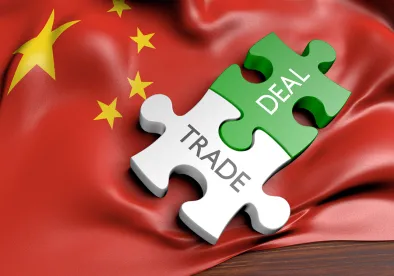In the past several months, China has adopted new arbitration rules and unveiled a new arbitration center to help resolve the inevitable international disputes arising from the development of The Silk Road Economic Belt and 21st-Century Maritime Silk Road, commonly referred to as the One Belt One Road Initiative.
Although China is a signatory to the New York Arbitration Convention on the Recognition and Enforcement of Foreign Arbitral Awards,[1] China has been considered a difficult jurisdiction for international arbitration because few Chinese judges and lawyers are familiar with the relevant law. Between 1994 and 2004, Chinese courts enforced just 37 percent of foreign arbitral awards.
However, in the past decade, China’s strategic legal thinking has changed as it has rapidly increased its foreign direct investment (“FDI”), particularly in the Middle East, Central Asia, and Africa. The government has recognized the advantages of arbitration, and more recently, Chinese courts have enforced 86.4% of foreign arbitral awards. The One Belt One Road Initiative, launched by the Chinese government in 2013, will only further increase China’s FDI and, correspondingly, its use of arbitration.
The Initiative, which involves mostly large-scale infrastructure projects (i.e., roads, bridges, pipelines, ports, etc.), includes nearly 70 countries stretching from France to Kenya to Indonesia. It is meant to develop two major trade routes connecting Europe, Africa, the Middle East, and Asia.
The Chinese government and investors will increasingly be investing in countries along the Initiative’s route and, absent a provision providing for arbitration, disputes would likely be subject to the jurisdiction of the nations in which they arise. This could cause uncertainty and additional expenses for investors who are unfamiliar with the languages and legal systems of these jurisdictions. In contrast, arbitration offers the Chinese government and investors a neutral forum to resolve disputes, and thus decreases investment uncertainty.
To that end, China has been educating judges about supporting arbitration and enforcing awards. The Supreme People’s Court, China’s highest court, has also adopted a reporting requirement under which any lower Chinese court that refuses to enforce an arbitral award must refer the decision to a higher court for approval.
The new investor-state arbitral rules, promulgated by the China International Economic & Trade Arbitration Commission, are also meant to reduce what China considers its unfair treatment in arbitration cases. The rules will allow third-party participation and public hearings, but are, according to experts, inferior to other investor-state arbitral rules, including the 2014 rules adopted by the United Nations Commission on International Trade Law.
Although, to the delight of investors, China has warmed to arbitration, it remains to be seen whether it will continue on this road. Whether it does so likely depends on whether arbitration contributes to President Xi Jinping’s “Chinese Dream.”


 />i
/>i

